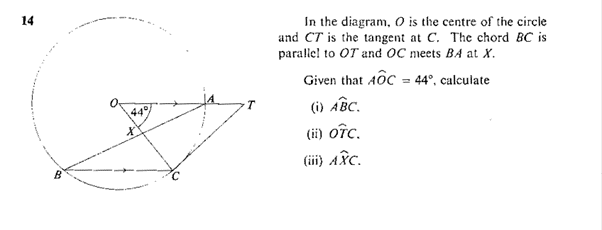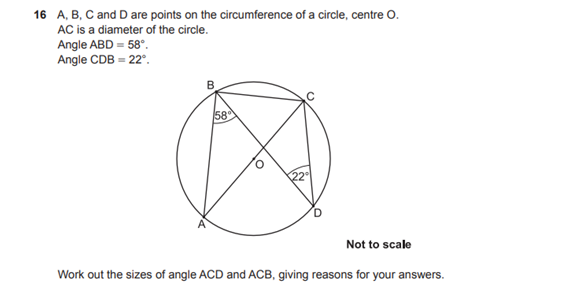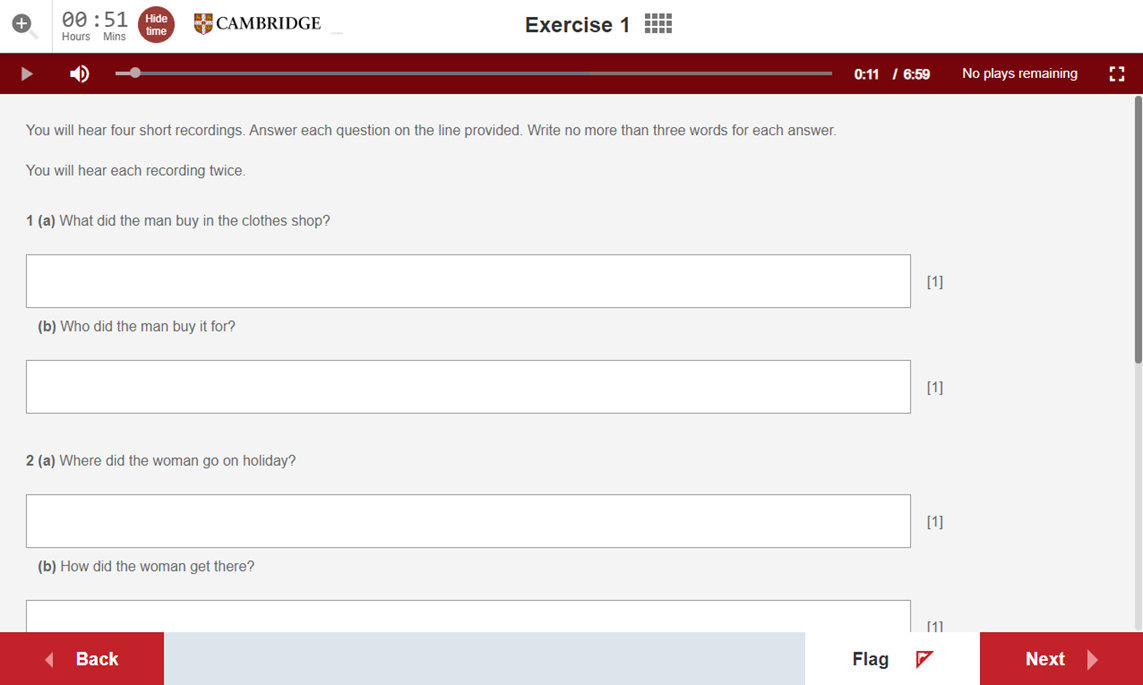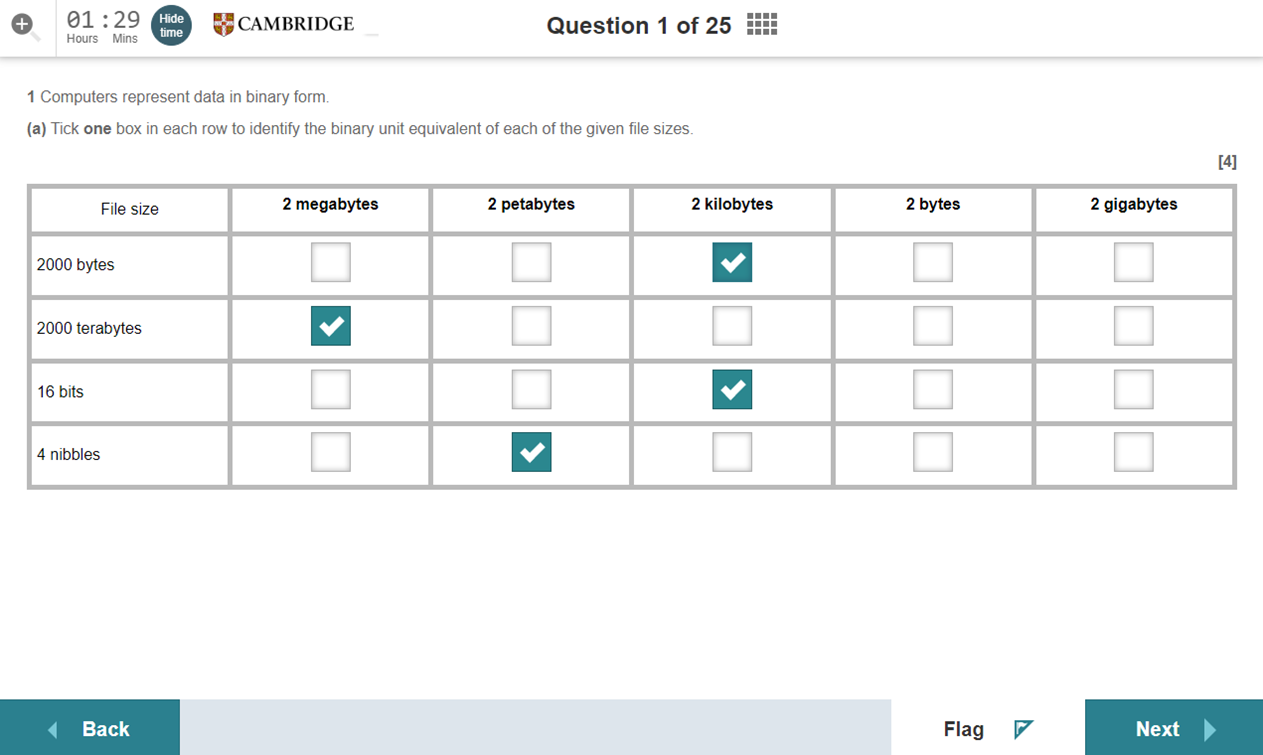More than 10 years ago the Guardian newspaper asked, ‘Why hasn’t e-assessment arrived more quickly?'[1] (I address this question in a workshop[2] for Cambridge Assessment Network if you want a more detailed answer). The same newspaper recently indicated that digital assessment is on its way[3]. So, is it? And if it is what does, and what should, that look like?
Compare this question [4] from a Maths O level (a high-stakes school exam for 16-year-olds in the UK) in 1984:

With this question [5] from the current Maths GCSE

Although there have been changes in the assessment system since 1984, including improving the student experience and the validity, fairness and accessibility of exams, as you can see, these two questions don’t look so different.

Changes to the assessment system for high-stakes general qualifications since 1984 have not been large (nor have there been huge changes to what is taught). Compare that to the changes in technology. In 1984: the CD Rom was introduced; Bill Gates was selling us floppy discs; Dell introduced their first PC, and the Apple ‘Macintosh’ computer was on the market. In 2023 technology is pervasive, intuitive, and personalised: Social Media links us to communities around the world; Virtual Reality gives us experiences only imaginable; cars drive themselves and robots look convincingly human.
So when will this technological revolution change the face of assessment as we know it?
At Cambridge University Press & Assessment we have a huge archive of high quality exam questions developed to rigorous standards[6] and we are often asked ‘Why don’t you just put your high stakes exams on screen?’. There are certainly benefits to doing that, and our schools have an appetite to try it. So it is one approach we are looking at. But we also exploring how we might use technology to build assessment fit for the future of education through ‘born digital’ exams.
Cambridge Online Mock Service
At Cambridge, we are currently piloting our Digital Mocks Service which takes our paper exams and translates them to screen. This example comes from an IGCSE English as a Second Language, Listening Paper and shows a web application where candidates can fill in their answers to questions after listening to four short recordings.

And here is an example from GCSE Computer Science showing a question with four parts where candidates can select the correct answer from five options by clicking to put a tick in a box.

For these types of questions there are clear benefits to replicating the paper exams on screen including:
- Improving accessibility – inbuilt tools in platforms for learners to personalise their experience
- Releasing teacher time by reducing exam admin and supporting potential auto-marking
- Collecting and using rich data to support learning
- Recognising and using the digital literacy of learners
I attended a seminar by The Digital Education Futures Initiative, Cambridge called ‘What will education look like in 100 years?’
‘100 years?!’ I thought, ‘That’s a bit ridiculous!’ But it was exactly the right way to think, instead of getting hooked on what tech might be like then, we admit that we don’t know, so can instead focus was on what education should be. We heard about how:
- learners will be empowered and at the centre of their learning
- disciplines will be integrated
- social and emotional aspects will be part of the learning process
- learners will be collaborating in a global community
- learners will understand and control the system they are in
- the difference between schooling and learning will be recognised
- collaboration, creativity, originality, integrity and relevance will be valued
- assessment criteria will not be tied to one world view or set of values
The implications are that assessments will:
- use a variety of assessment types – not just paper exams (for example projects, observation, interactive problem-solving)
- assess a broad set of skills and behaviours including those needed for work and higher education
- give learners authentic tasks
- continually capture evidence of learner achievement (not just at the end of a course)
- offer different tracks (for different abilities or interests)
- reflect the most effective teaching and learning practices
Notice that there is no mention of tech in that description of a future education system. Yes, tech will be there because the environment in which we function is digital, but the tech should not drive decisions. Thinking long term helps us solve a problem and avoid jumping to tech as a solution.
Cambridge ‘born digital’ developments
As well as shifting assessments from our current system to screen we are developing assessments which fit with what the future of education could be. We are using the technology (low and high tech) to fit the needs of the task and the learner, and we are working with our teachers to understand and solve the problems they have.
For example, the assessments we are developing:
- Give learners interactive stimuli to support and assess computational thinking. Using these tools learners can generate data to test their hypotheses, helping them spot patterns and solve problems
- Assess coding in authentic ways – e.g. as well as expecting learners to write code from scratch we allow them to find code and adapt it for their use – an approach more authentic to the job of being a programmer
- Give learners access to a range of digital historical sources - we listened to teachers’ concerns about the limitations of how current exams assess the analysis and interpretation of historical sources, which is just a subset of the skills needed to do historical research
- Assess the process that a learner goes through when doing historical research. Current exams focus on the product – the actual written project, rather than the demonstration of skills necessary to create that product. This is by continual capture of digital artefacts and reflections
- Replicate effective teaching and learning by assessing using the same processes used to teach.
2060?
I predict that the future of educational assessment will involve virtual reality, chatbots, virtual collaboration assessed using AI, and other tech which has not yet been invented. But let’s not be driven by this technology (as alluring as it is). I started this blog looking back nearly 40 years to 1984, let’s look forward about 40 years to 2060. We don’t know what tech will look like then, but do we know what education will look like in 2060?
Education is a social, political and regulated activity and so is slow to move. Whatever decisions we make now about education (including high stakes assessment) will stick – they are very likely to still be in place and impacting in 2060, so it is hugely important that the decisions we make now are based on evidence and are driven by what serves learners and prepares them for life.
The Cambridge Digital High Stakes Assessment Programme uses research to inform assessment design and evaluate the quality of assessments. Find out more about this project through this series of blogs and latest seminar event.
References
[1] https://www.theguardian.com/education/2009/jul/21/online-exams-schools
[2] https://www.cambridgeassessment.org.uk/events/apw-digital-assessment/
[3] https://www.theguardian.com/education/2022/may/04/england-exams-regulator-ofqual-exploring-online-a-levels-gcses
[4] https://www.cambridgeassessment.org.uk/Images/1984j-mathematics-olevel-questionpaper.pdf
[5] https://www.ocr.org.uk/Images/169001-higher-tier-sample-assessment-materials.pdf
[6] https://www.cambridgeassessment.org.uk/Images/cambridge-approach-to-assessment.pdf